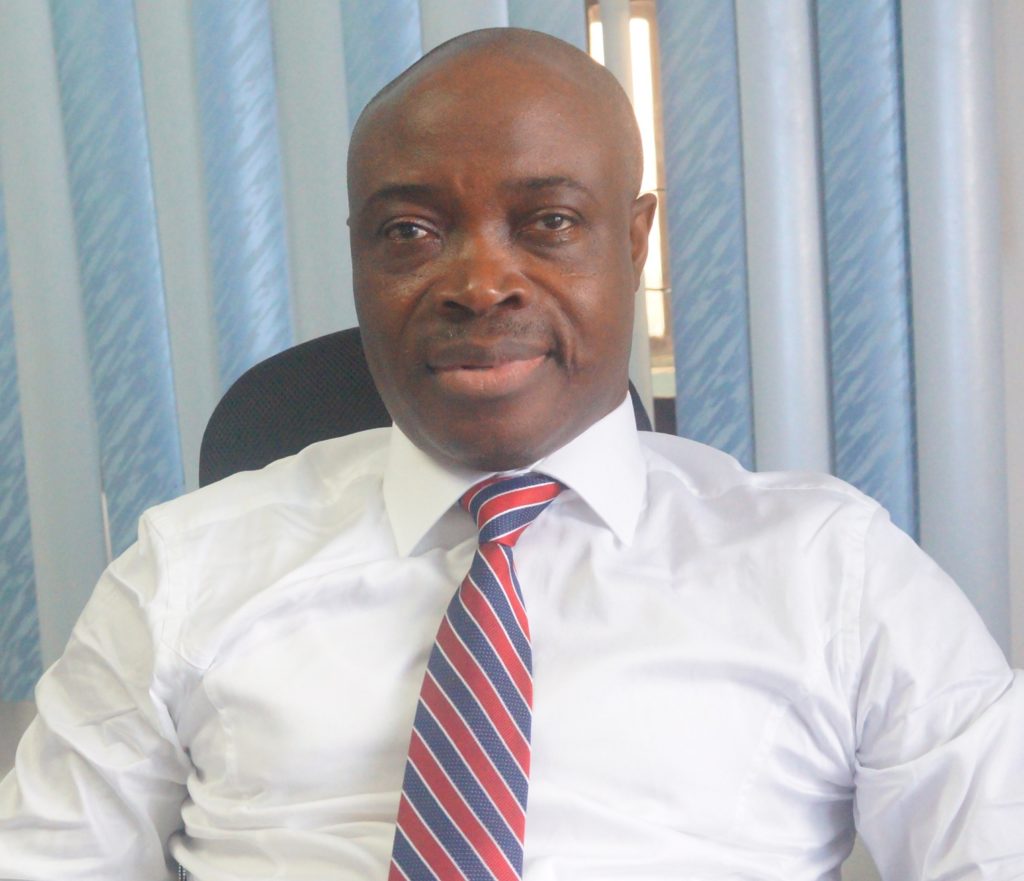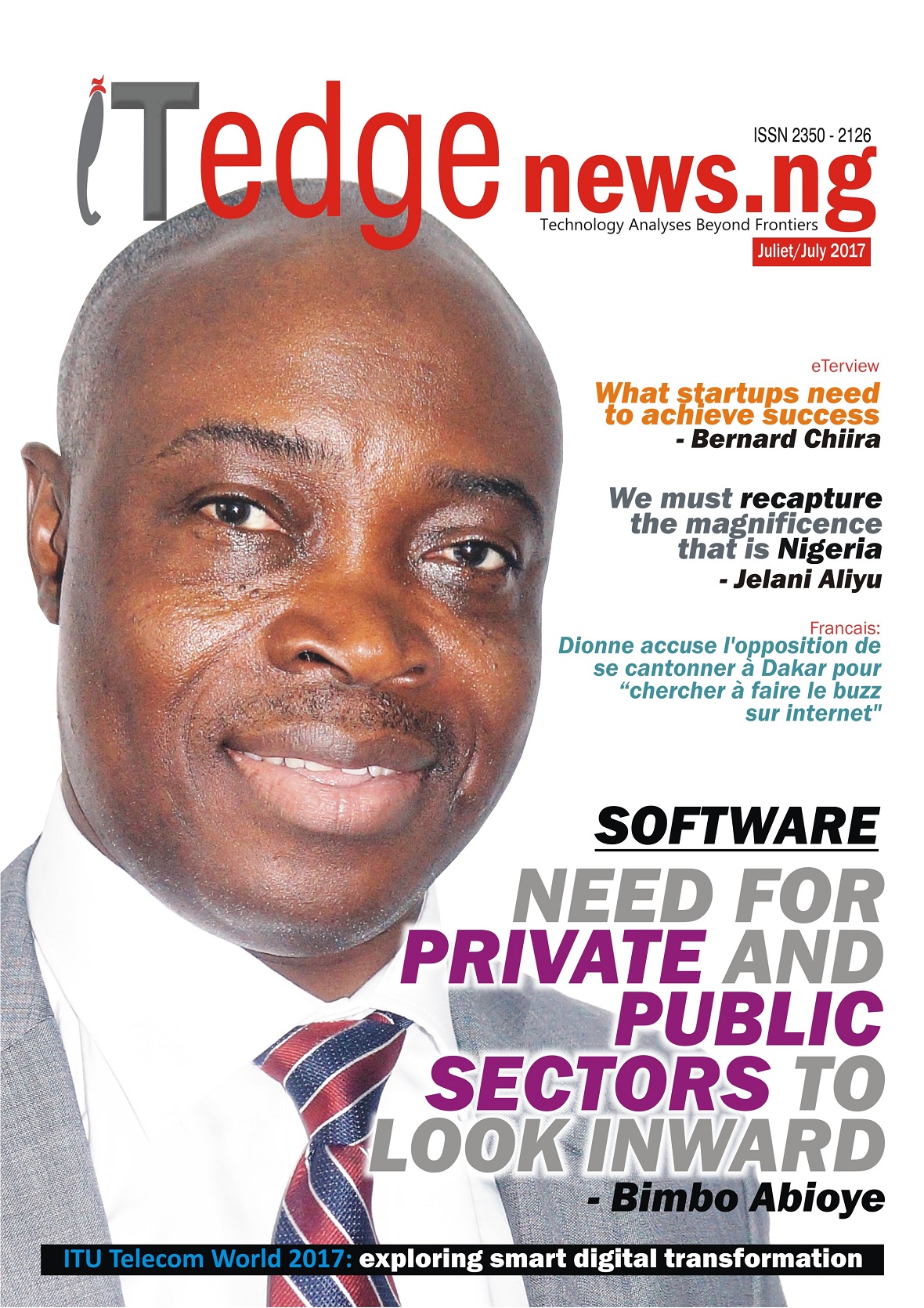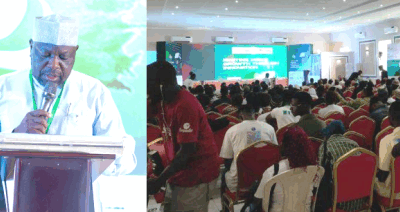Bimbo Abioye, Chief Executive Officer of FinTrak, a global financial technology company with several technology implementations across Africa, speaks to IT Edge News, Anthony Nwosu and Oluwatobi Opusunju, in Lagos on the need for Nigerian financial institutions to adopt homegrown software solutions. Abioye argues that patronizing local content has its challenges but sustainability of the sector and the economy hinges on the continuous adoption of local content. Government and the private sector are key stakeholders in implementing the local content agenda but local software companies must remain consistent in delivering premium solutions that address unique industry needs. Abioye also shares his concerns on the IFRS9 migration in Nigeria.
As an indigenous financial software development firm, when did you commence business in Nigeria?
We started this business over a decade ago as a consulting firm, majoring in finance and technology consulting. As we evolved, the technology business grew beyond financial advisory, so we incorporated FinTrak Software Co. Ltd to take over the technology consulting business in July 2013. We did this for two reasons; one is to establish a company that is very well known in the areas of software development and delivery services and also to harmonize the brand with the name for effective business communication and better corporate visibility.
You are well known in the Nigerian software and financial space, what about the regional space?
Yes. We have actually developed solutions that have been proven in the Nigerian market and they have been deployed in many financial institutions and some non-financial institutions. Presently, we have about 13 commercial banks, seven mortgage banks, five insurance firms and a manufacturing firms using our software. Our solution offering comprises of core banking software for commercial and non-commercial banking entities, underwriting systems for insurance companies and enterprise business process applications suitable for virtually any organization private and public. Also, the suite includes Enterprise Reporting and Business Intelligence Platform to drive strategic insight and enterprise decision support. There is also Enterprise Budget Planning Processing and Control platform to drive strategic and operational planning processes and evaluation of results in comparison to planned corporate goals. FinTrak Software applications will radically transform business processes globally in few years to come.

We have built indelible track records especially in the Nigerian financial services. We intend to expand this to other public and private sector organisations in Africa and globally. We observed that most organisations in African countries invest much on software and yet do not get the commensurate value due to disconnect between technology and their business dynamics and processes. Our goal is to offer platforms that connect with their businesses. We currently have technology implementations in Nigeria, Ghana, Congo, Gambia, Rwanda, Zambia, Kenya and Sierra Leone and some other African countries. Today, some Tier 1 banks using our solutions have presence in major African countries. Our ERP is multilingual and it can be deployed in either French, portuguise and English speaking countries. This is exapandable to other major lingua
When you say you are in these countries do you have a physical presence or franchise?
In terms of physical presence, we are in Ghana, Gambia and Kenya; in Congo DRC, we have a business partner. We intend to expand further both locally and internationally leveraging on business partnership.
Most organisations in Nigeria prefer foreign solutions. What is your firm doing to break these mind-walls?
It has been challenging over the years, but now, we are making considerable progress. When we started, no serious organisations wanted to touch local software especially banks and other financial institutions. Some had ‘unwritten laws’ prohibiting local software patronage. When you introduce local software to them you would meet a mind-wall. But today, our solutions are being used in those organizations.
We accomplished that feat by consistently delivering quality products and services to organisations that are receptive to local options while those that are fixated on foreign options have suffered many failed implementations and poor local supports. This has positioned our products and services above foreign options.
A good case study was the adoption of International Financial Reporting Standards (IFRS) in Nigeria in 2012. Some financial institutions who believed that technologies for implementation of IFRS being a global standard could only be sourced from foreign countries bought foreign solutions to solve the problem – In short, a lot of banks, insurance companies and other financial institutions in Nigeria bought these solutions and it was mass failure for them. It was gathered that over three billion naira was lost on failed implementation of IFRS solutions in the industry. One of the banks believed in us and it became the only bank that reported its financial statement on IFRS for 2012 electronically. Since then, we have re-implemented IFRS for many of these banks and other financial institutions and others that embarked on their conversion a bit late.
Above case study and our other interventions is making some of our clients to think FinTrak first. Though the mentality is still there, but we are getting there. Now, that the new IFRS 9 adoption is very near (January 2018), I hope that organisations implementing IFRS 9 will learn from the past even though it is not in our culture as Nigerians – we hardly learn from the past.
How are you able to achieve competitive pricing?
This has been a serious challenge, but we are trying to correct this erroneous impression that solutions developed locally are inferior to the foreign option and as such, should attract low pricing. A typical Nigerian firm could be ready to pay about N250 million or more for foreign software that might not solve the required needs of their organisation, but for a local option, they would want to pay about N25 million or less even though, this better meets their needs. We are doing everything to change this unfortunate situation as it can potentially impact on our capability to invest adequately in Research and Development (R&D), recruit adequate personnel to sustain brand quality and deepen market penetration globally.
Do you have enough support from the government and how were you able to convince the Francophone countries to acquire this?
Past governments have been paying lip services to local software developments. There was a directive in 2006 by Obasanjo/Atiku regime that all MDAs should patronize indegenious software and hardware services where they exist. Today, Buhari/Osinbajo administration is preaching ‘Buy Nigeria’ and recently, Acting President Osinbajo released an Executive Order to ensure MDAs patronize locally available solutions. We are hoping that the current government will muster the needed political willpower to ensure that local software firms are given the opportunity to thrive. We are also in discussion with all relevant government agencies such as NITDA, NOTAP, BPP and others. We are letting these agencies understand that we have solutions that can help the government improve its processes and reduce bottlenecks being faced by the ministries and parastatals. Other associations like Institute of Software Practitioners of Nigeria (ISPON), Nigerian Computer Society (NCS) and Computer Professionals of Nigeria (CPN) have been supportive in terms of active advocacy. Today, Nigeria is buying Indian Software, India started by accepting their own and only their own and then they improved on their solutions and today Indian software are everywhere, our culture of buying foreign at any cost and thus maing foreign countries richer and richer while improverizing our own country through unbridled desire for anything foreign is definitely unsustainable.
What level of security implementations have you carried out on your product and services?
Talking about security, we have amongst us information security expertise holding gold standard and ISO rated credentials in Information System security. Certifications like Certified Information System Security Professional (CISSP); Certified Information Systems Auditors (CISA) and Certified Information Security Manager (CISM). These body of experts well versed in systems vulnerabilities and countermeasures have designed and built in robust security implementations to make it difficult for any hacker to break in or cause distruption of service. We have built-in security by architecture and by design to provide multi-layered defence indepth in our solutions.
How about financing?
Software being an ‘intangible’ product (i.e. not physical), it has been challenging getting banks to finance software development efforts. Bank of Industry (BoI), for example, does not see software development industry as an Industry they could support; instead, they are busy pursuing tailors, fish sellers and brick makers. Though, through ISPON,we are engaging BOI to fashion out ways of supporting the Software Industry just like they currently support Nollywood. Currently, we are only able to source loans from some banks secured with our project receivables. This also has been pretty difficult as most banks are still doing brick and mortal banking and are not transational. We have plans to invite private placements and get listed on the Nigerian Stock Exchange to raise finance in the capital market in the immediate future.
What is the level of compliance with the directives of the regulatory bodies as it concerns migration to IFRS 9 on or before the January 2018 deadline?
Changes brought about by IFRS 9, affects mostly financial Services industry players. We see a lackluster effort arising obviously from the challenges financial services industry players, their auditors and regulatory bodies encountered during the implementation of the IAS 39 based financial reporting standards as mentioned earlier. Most stakeholders are adopting hyper cautious approach. The Central Bank of Nigeria seems to be unwilling to wield the big sticks to avoid a repeat of hyper pressure that led the banks into making erroneous choices of technical implementation of IFRS based reporting under IAS39. The auditors / IFRS consultants are afraid of advising their financial services clienteles to adopt IFRS software to avoid reputational backlash they suffered recommending foreign IFRS tools that failed woefully. The Financial Reporting Council of Nigeria is in comatose in consequence of the sacking of the earstwhile hyper active boss who ventured off course into needless war with religious bodies. So, both the regulators and the regulated are adopting a rather weak approach to automation of the reporting process. We are currently implementing IFRS 9 based financial reporting solution to some players in the sector and success of the effort will stimulate the industry and players adopting wait and see approach will eventually come on board. There is no viable alternative to automation of IFRS 9 considering its complexities and linkage with risk management.
What would be the implication if any of the FIs in the country is not able to meet the deadline?
Once you sign up to IFRS, there is no stopping, no parking and no loitering! You just have to keep moving. That means January 2018 is sacrosanct! One way or the other organizations will comply, how they will comply is a different ball game. It could be through manual methods using spreadsheets and those currently using FinTrak IFRS Solution are able to leverage on FinTrak IFRS 9 Upgrade to achieve their objectives in terms of technology implementation. It is practically impossible to achieve full fledged IFRS 9 implementation using manual methods. Somehow everyone believes that they are doing IFRS, but very few organizations are actually doing true IFRS based financial reporting especially those using spread sheets”.
Meanwhile, virtually all stakeholders are still seeing IFRS as a reporting tool. No! That is not the mind of the proponents of this standard who expect that reporting organization would embed these IFRS rules in systems supporting processes of their day-to-day business processes and reporting of their operational results. Attempting to work IFRS with spreadsheets is a monumental setback to the objectives of IFRS adoption.





























